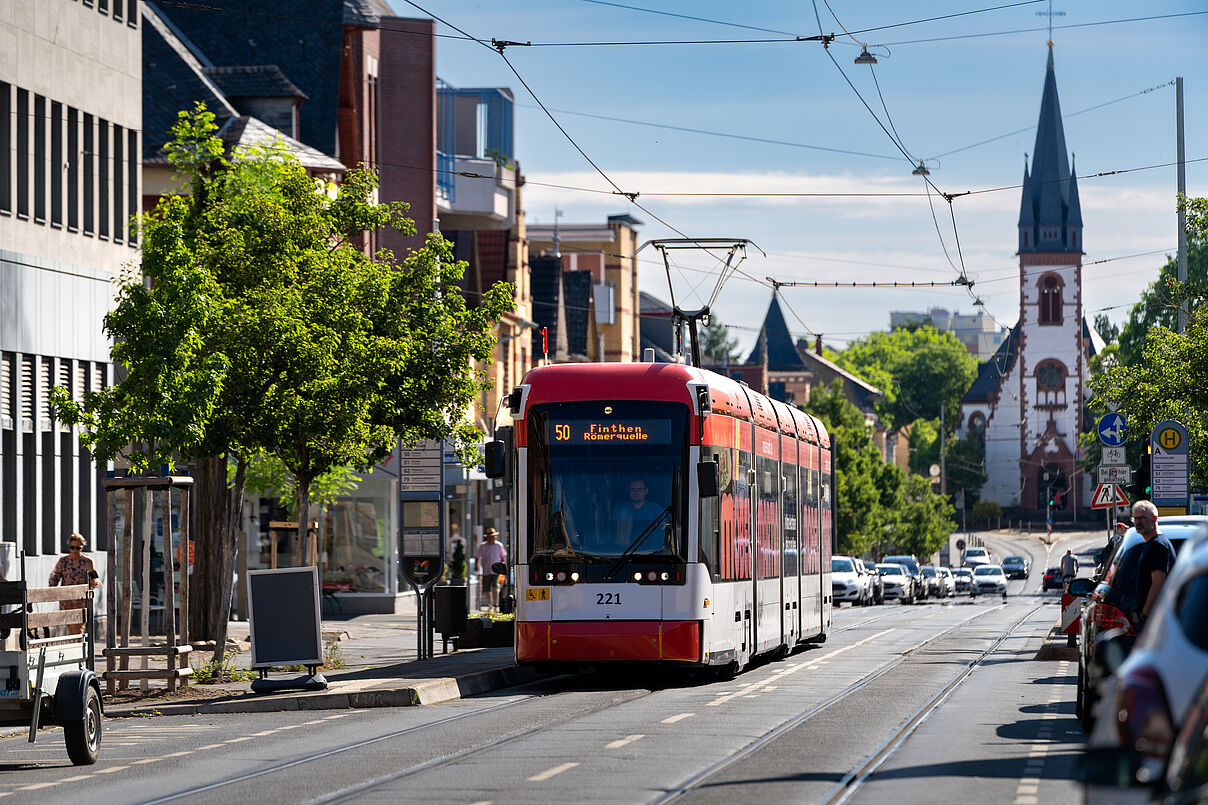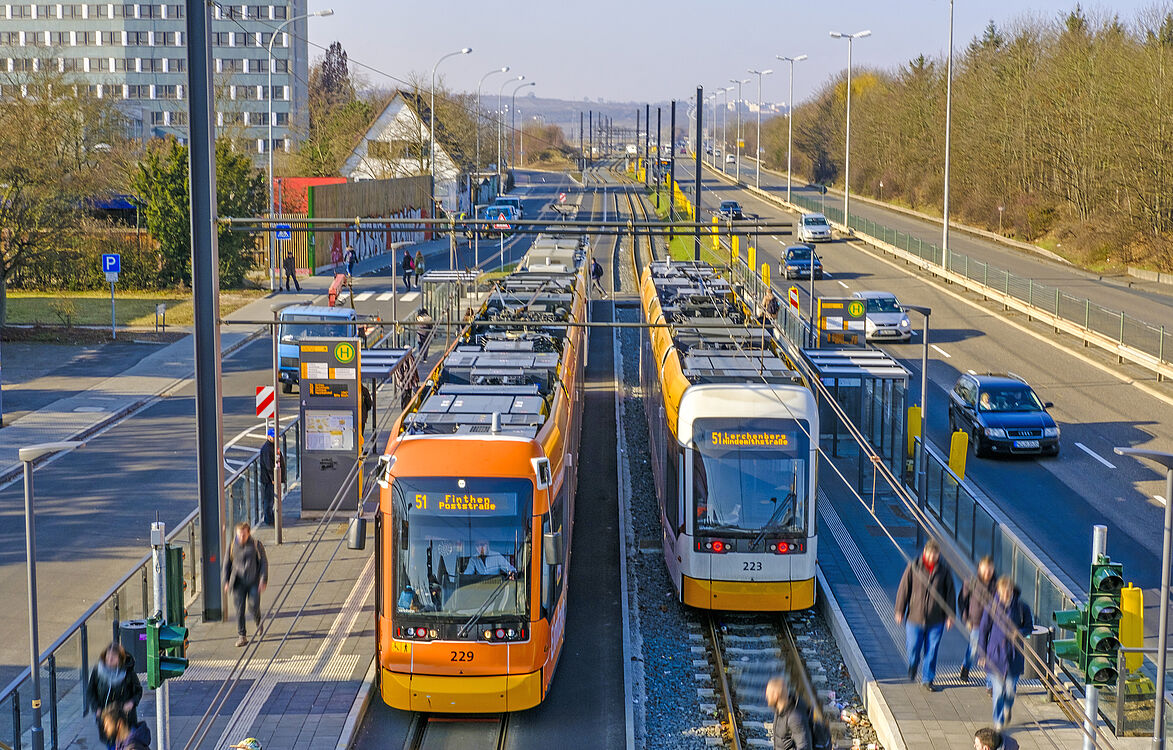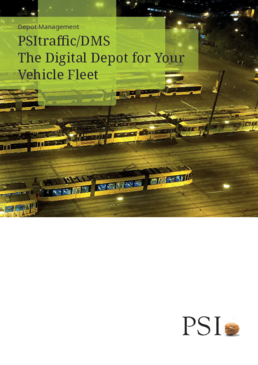Every year, 50 drivers transport more than 53 million passengers to destinations in Mainz and the surrounding area in a total of around 130 diesel buses, 27 electric buses and 41 tram trains. The Mainzer Verkehrsgesellschaft, which now operates under the Mainzer Mobilität brand, is responsible for this. The transport company relies on digitalised processes in vehicle and personnel scheduling to improve the cost-effectiveness, efficiency and transparency of its operations and workshops.
Industry standards with many advantages
Depending on the days of the week, the Profahr personnel scheduling system plans between 123 and 296 services (Sundays/Fridays) and automatically takes into account statutory driving and rest periods, the qualifications of the driving personnel and special operating conditions, such as combination drivers who are qualified to drive both a bus and a tram or drivers who can only be deployed to a limited extent for various reasons.
In addition, the transport company uses Profahr to manage holiday planning, keep time accounts and calculate supplements and flat rates for payroll accounting at the touch of a button.
At peak times in particular, it is especially important for MM to be able to register drivers quickly and easily with an integrated driving licence check via terminals set up specifically for this purpose.
Fast duty logon and visualisation in the control center
When a driver starts a service, including reserve or availability services, all he or she has to do is hold the driving licence with the RFID chip attached (see info box below) up to one of two terminals with an integrated reader. The number of the RFID chip on the driving licence is stored in the personnel master data as the second selection number. As soon as the device has read the chip, a short confirmation appears on the monitor and the log-on screen immediately reappears so that the next person can log on. This is extremely simple and, above all, takes place at the required speed.
A web service of the PSItraffic depot management system queries all the service entry messages recorded via Profahr in real time and immediately visualises the current data for the duty personnel in the control centre.
What is RFID?
The term RFID comes from the English language and is the abbreviation for Radio-Frequency-Identification. Loosely translated, the term means "radio identification". In other words, recognition that works with the help of electromagnetic waves.

Even more digital in the future
With Profahr, MM fulfils all legal, collective and company agreements on driving and working times as well as billing-relevant aspects such as surcharges and flat rates.
If there are any changes, these can be easily configured or customised. The company is planning a number of extensions for the future, with the aim of digitalising and simplifying other processes. At the top of the list, for example, is the duty swap centre. This should enable drivers to swap services at any time and from anywhere, taking into account all necessary aspects, without having to contact a dispatcher. The same applies to the publication of open services via a digital "marketplace".
The company also sees great potential in the digital recording of holiday requests and optimised, automatic holiday allocation. With the introduction of the desired duty roster module, the company also wants to create an opportunity for co-determination.
This means that drivers can enter their preferred shifts and rest days, which are then checked against the duty roster by a system-side optimisation run and adapted and implemented fairly for all employees.
Rotation planning with pptimized workshop utilisation
In vehicle scheduling, the use of the PSItraffic depot management system (DMS) improves all work processes and information flows for and between the vehicle service, workshop and driver service information departments. Due to the mixed operation of buses and trains as well as the diverse and sometimes topologically challenging vehicle layouts in an underground car park, these require particularly sophisticated vehicle and circulation scheduling.
For Mainzer Mobilität, it is essential that the system schedules vehicle rotations in such a way that the workshop is also utilised as fully as possible and refuelling and cleaning intervals are carried out on schedule and with minimised downtimes.
The DMS is also designed in such a way that MM can expand its fleet to up to 300 vehicles in the future.
Noticeable relief for all user groups
From the perspective of Mainzer Verkehrsgesellschaft, the benefits of the PSItraffic DMS can be divided into three areas:
- The system optimises operational processes, digitises and automates essential information and its exchange, such as
- Timetables and duty rosters
- fault reports
- Workshop orders
- Supply orders
- Actual locations of vehicles and the
- report generation for the evaluation of operational analyses
- At the same time, the digital mapping and automation of information and processes within the system reduces distances and phone calls and ensures significantly faster processes.
- In third place is the high level of acceptance and satisfaction among users in traffic control, the workshop, driving personnel and the supply service. This is mainly the result of the noticeable daily relief that results from the digitalisation of many operationally relevant functions.
As both systems now originate from PSI, the company benefits from the resulting synergy effects - from communication to system adjustments, such as the introduction of digital RFID log-on for drivers.



